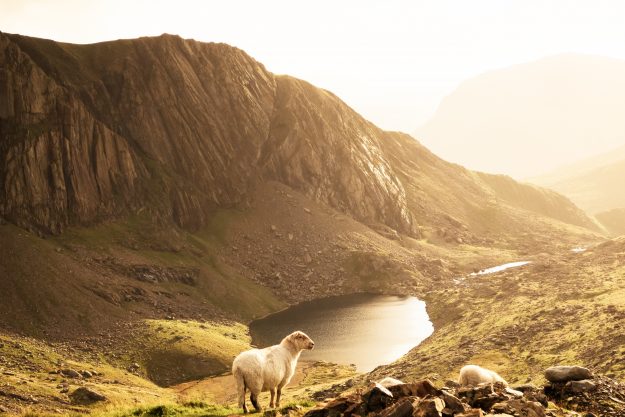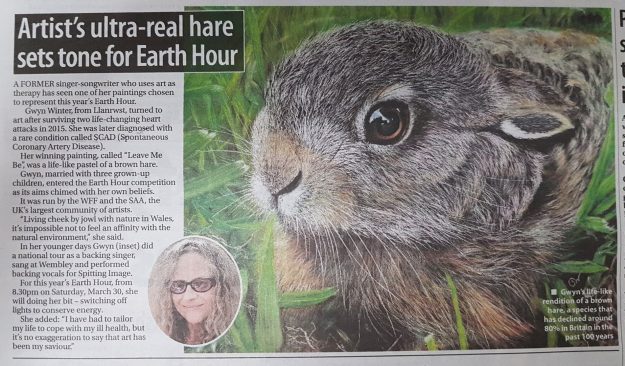As the protest against Climate Change gains momentum, how are UK arts institutions responding?

Environmentally conscience artists are encouraged to apply for a summer residency, organised by the National Theatre of Wales, seeking fresh artistic ideas to combat climate change.
The event, set to be staged from 1 – 13 July in the northern reaches of Snowdonia National Park, aims to use the power of art to stimulate new thoughts that challenge our understandings and actions around the current ecological crisis.
Announcing the residency, given the name Egin, National Theatre of Wales’ Head of Creative Development, Simon Coates, said, “Climate change is the most urgent issue of our time and will affect every single one of us and generations to come. Now more than ever we need the arts and culture to help us respond.
“Egin aims to do just that; to kick-start fresh artistic responses to the topic, by creating an environment in which Welsh, Wales-based and international artists can spend valuable time developing their work and inspiring each other.”
Check out our brand new opportunity to be part of a 2 week residency in Snowdonia National Park in response to climate change #NTWEgin @NTWales @visitsnowdonia @BCouncil_Wales @NatResWales https://t.co/j6VvqJMs5C pic.twitter.com/Vl6lrBs9NF
— NationalTheatreWales (@NTWtweets) March 22, 2019
Applications for Egin, the Welsh noun for ‘buds’ or ‘shoots,’ close on Friday 19 April and are looking for ‘13 adventurous and collaborative artists from different artistic disciplines at different stages of their careers to attend and take part.’
The residency, in partnership with Natural Resources Wales, looks to take advantage of the inspiring landscape and rich social history of the 823 square miles national park, home to over 26,000 people, and the highest mountain in England and Wales.
The combination of art, and the growing movement for environmental action, has seen a number of events and competitions that intertwine the two organised this year.
One such example was a national painting challenge, issued by The Society of All Artists, that coincided with Earth Hour, the international grassroots initiative which compelled people to switch off their electricity on March 30 at 8.30pm.
Painting to the theme of – ‘Why does protecting nature matter to you?’ – the winner was Welsh artist Gwyn Winter, from Llanrwst, with her lifelike pastel of a brown hare, titled Leave Me Be.
Gwyn said, “Living cheek by jowl with nature in Wales, it is impossible not to feel an affinity with the natural environment. I couldn’t feel more strongly about our responsibility to protect our fellow species on the planet.”

Taking inspiration from the actions of protest group Extinction Rebellion, and the school climate strikes that saw almost 1.5 million people take to streets around the world, next week will also see leading UK art institutions including the Royal Court Theatre and Shakespeare’s Globe staging a day of action on 12 April.
The event has come in the wider context of the Culture Declares Emergency movement which has seen more than 180 institutions and individuals from across UK arts and culture sign up.
Lucy Neal, a spokesperson for Culture Declares Emergency, said, “Humanity faces the combined catastrophes of climate change, a mass extinction of vital biodiversity and a degradation of ecosystems health everywhere.”
.embed-container { position: relative; padding-bottom: 56.25%; height: 0; overflow: hidden; max-width: 100%; } .embed-container iframe, .embed-container object, .embed-container embed { position: absolute; top: 0; left: 0; width: 100%; height: 100%; }
The movement is behind the ‘Letters to Earth’ event next week on 12 April, where letters from hundreds of members of the public will be read at theatres across the UK, including the National Theatre of Wales.
Former artistic director of the Young Vic, David Lan, said, “As Sophocles and Shakespeare and Moliere and Ibsen and Brecht wrote plays as interventions into the major political crises of their worlds and of their time, so we now need our writers to record and reflect this probably biggest ever global challenge.”
What does our creative community have to say to our planet? Join our exhibition opening and reading of #letterstotheearth @ShopFrontCT9 #margate on 12 April, 4-6pm as part of an international day of action for @CultureDeclares and @ExtinctionR pic.twitter.com/JaUckhniVv
— Co-relate (@Corelateuk) April 3, 2019
